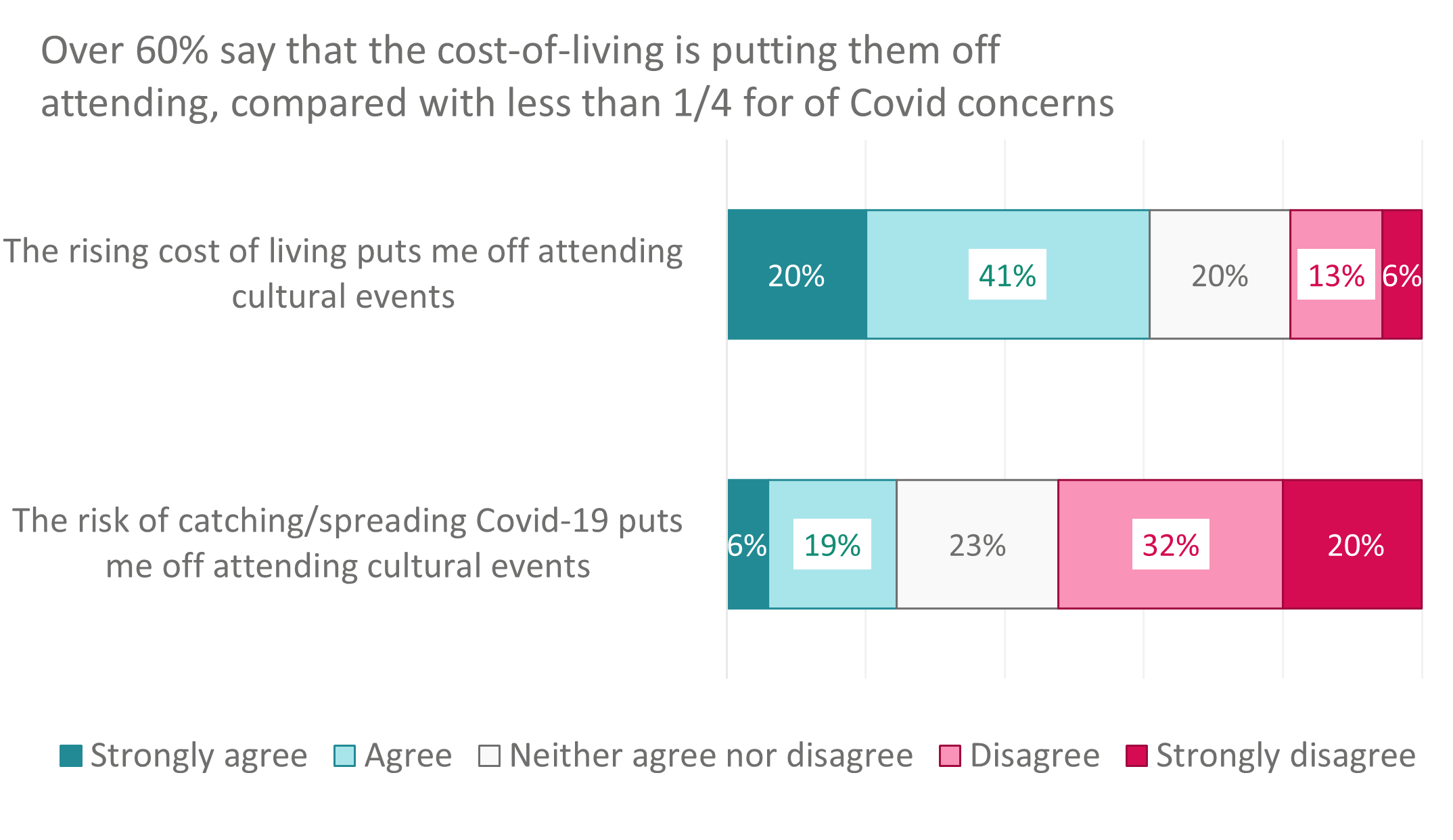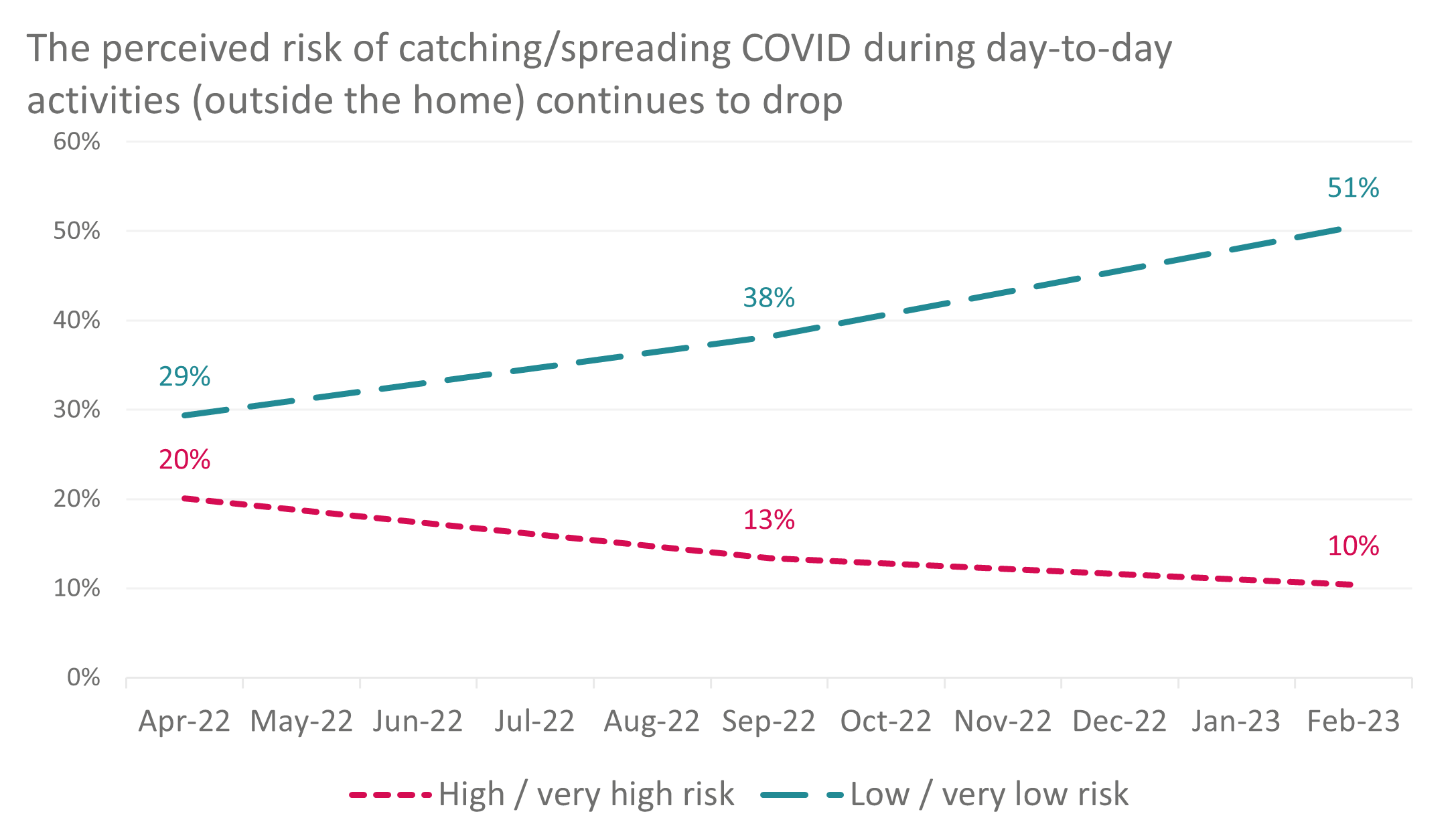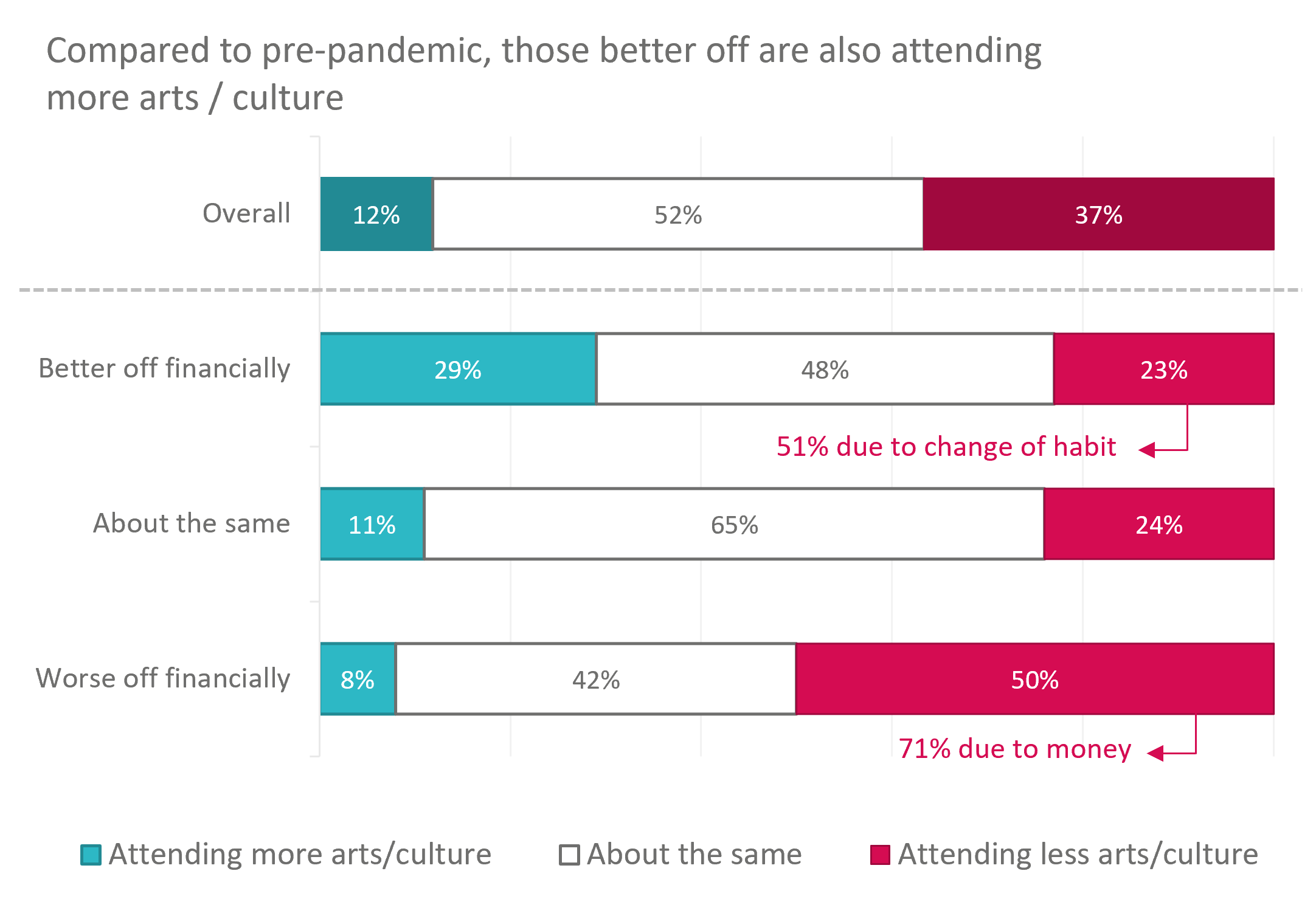Cost of living outweighs covid
March 2023
This research is from The Audience Agency's nationwide longitudinal (ongoing) panel survey of changing views about participating in creative and cultural activities through the recent and ongoing crises, and beyond, the Cultural Participation Monitor.
Contents
Themes
Over 60% say that the cost-of-living is already slashing their ability to attend culture events (more than twice than because of Covid concerns), with even higher numbers expecting this to still be the case in 6-24 months' time.
Relative Impact of Covid and the Cost of Living

- The cost-of-living crisis is a much greater driver of changes to engagement behaviour than Covid-19 at this stage.
- Only 24% say they agree/strongly agree that Covid-19 puts them off attending cultural events; at 61% it's more than twice that for the cost of living.
- Focusing just on those who attended less than 12 months ago (31% of the population), 36% said it was due to Covid-19, 79% due to the cost of living.

- The perceived long-term impact is lower for Covid than cost-of-living as well, with 33% thinking it was very or quite likely that Covid would impact their behaviour in 6 months and 20% in two years, compared to 77% and 58% respectively for the cost of living.
- Similarly, the cost of living is also far more important as a driver of reductions in membership and volunteering than Covid.
Attitudes to Covid
Over half of respondents now consider the risk of day-to-day Covid infection to be minimal, though 1/4 still say that concerns about transmission put them off attending cultural events - albeit far less so than the cost-of-living (c.60%)
- Covid has receded as a perceived risk, with a majority (51%) now saying that the risk of contracting or passing on Covid in day to day situations is ‘low’ or ‘very low’.

- Nonetheless, it remains a key factor for between a fifth and a quarter of people across a range of measures (e.g. ‘I wear a mask at indoor events, 22%; ‘I am nervous about using public transport because of Covid’, 27%). 24% say that the risk of Covid is putting them off attending cultural events (cf, 61% for the cost of living).
- Conversely, around a third agreed or strongly agreed that ‘in the UK at least, the pandemic is effectively over’ (34%).
Attitudes to the Cost-of-Living
1/2 of respondents are feeling financially worse off than last year, which is starkly mirrored in the 50% of respondents who say they are now attending fewer arts and culture events, mostly citing money as the primary reason.
- People are feeling worse off than before the pandemic (47% feeling worse off cf. 12% better off) and compared to last year (48% and 12%).
- This is clearly linked to attendance: those who are feeling better off than 12 months ago are as likely to say they are attending more as attending less (25% for each).

- For those who feel worse off, there is a 42% difference (8% attending more, 50% attending less).
- 56% of those attending less said that it was because of money, much more than any other reason.
Related videos
Cultural Participation Monitor | Latest Findings on Audience Attitude and Behaviours
Watch nowOther findings from Wave 8 | Mar 2023 | Cost of Living, social media, support for organisations
-
Engagement trends
1/3 still report attending arts and culture less than pre-pandemic, though under 35-year-olds are returning more than others, and are more likely to identify as the 'initiators' of social cultural activity with friends and family.
-
Late booking trends
Panto season pre-sales stand out as being back on track, though this goes against an overall trend towards later booking, with over 40% saying that they now tend to book more last minute than they used to.
-
Social media behaviour
More than 1/3 people say they follow an 'arts and culture' organisation on social media, though report being more inclined to do so out of interest in the broad topic or artform, than in that specific organisation and its events.
